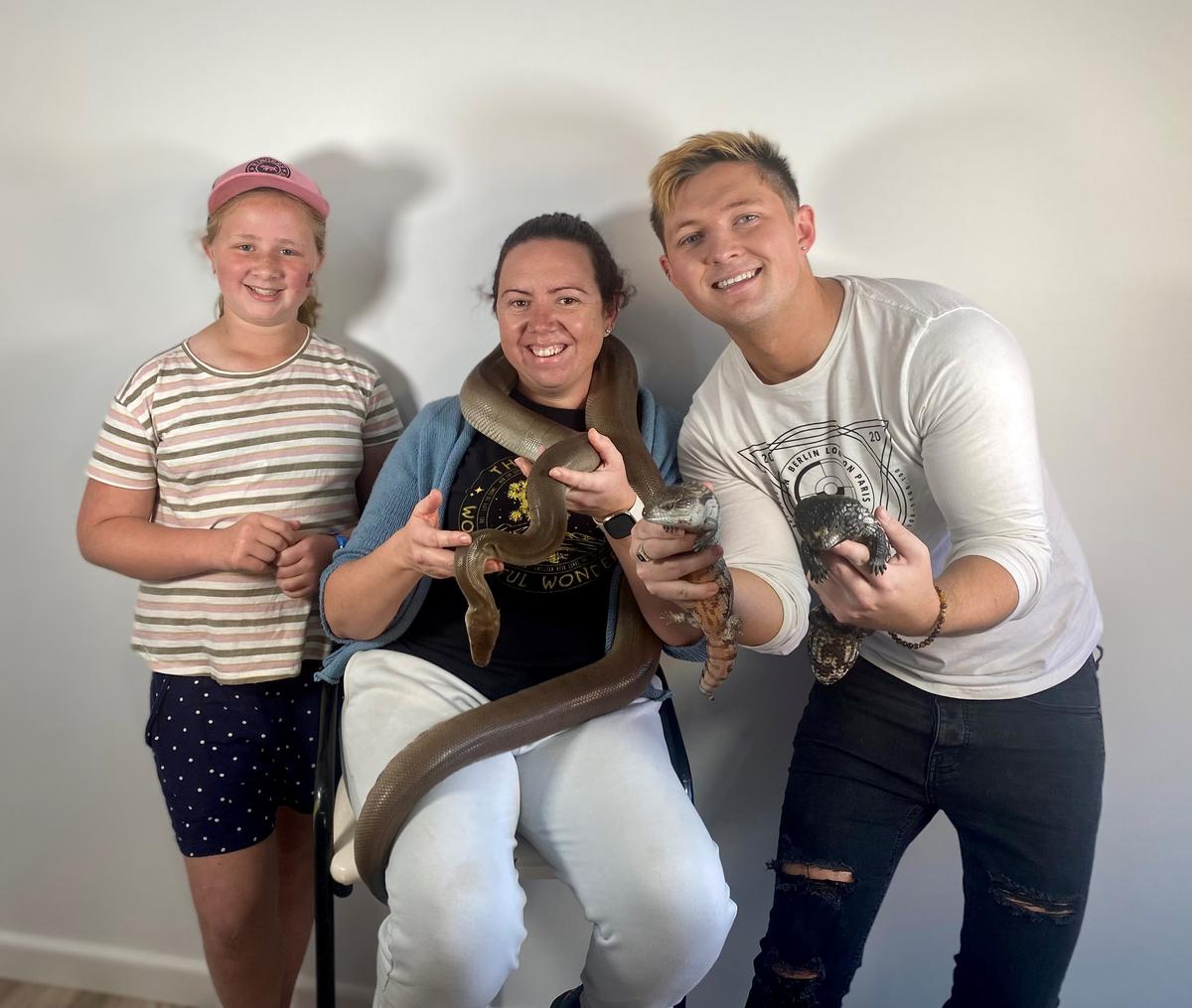Where Are They Now
Zoology Graduate - Ethan Towns

Where Are They Now
Zoology Graduate - Ethan Towns


A childhood fascination with insects would, for Wee Waa High School graduate, Ethan Towns, become a passionate career journey.
Graduating in 2015, Ethan recalls his school years as rather social and where his application to his studies earnt him good grades.
Known for his love of hunting for insects, even when at school, it was a former primary school teacher who suggested to Ethan that for Year 10 work experience he should try the local CSIRO’s entomology department. That suggestion couldn’t have been any more suited to this talented young scientist.
‘After completing my week of work experience, I had a call to ask if I would be interested in a traineeship running parallel to doing my HSC’ Ethan explained. ‘I jumped at the chance and during Years 11 and 12, I worked one day a week for the CSIRO and during each school holiday break. The rest of the time I was at school studying for my HSC.
Another great area of interest for Ethan since childhood is art. His interest and talent was cultivated by his artistic mother, but as he explained, ‘Even though I loved art, my traineeship with the CSIRO really cemented for me early on that insects and science was my calling. I quickly knew I wanted to go on after high school to study a Bachelor of Zoology’.
So, with the marks to pursue Zoology and with an ever-increasing collection of reptiles, insects and other animals, Ethan was pleased that he could pursue his studies at the University of New England in Armidale. The university’s proximity to Wee Waa meant that he could regularly return home to care for his growing menagerie.
‘I was really dedicated to my university studies from the outset, and I was determined to do well so that I would be invited to do honours’. When the honours invitation came two years ago, Ethan not only jumped at the opportunity, he elected to complete this next stage of his studies at the CSIRO rather than at university. ‘The CSIRO has so much more equipment than the universities and this was really appealing to me’.
‘The focus for my honours studies in entomology was the dung beetle and looking at the difference in the assemblage of vegetation, exploring better sampling methods and observing the effects of drought on dung beetles. During the drought, when dung beetles were absent, I discovered a beetle feeding on dung. This led to me deciding that I wanted to focus my PhD studies on examining factors associated with climate change, and whether other beetles may be able to enhance soil health by reintroducing dung to the soil during extreme weather conditions’.
Ethan thrived working on his honours and quickly knew he wanted to go on and undertake a Phd with the University and continue on with the CSIRO’s Australian Cotton Research institute. So applying himself with he same level of dedication he was known for, Ethan’s doctorate ambitions are now well on their way. ‘CSIRO continue to sponsor me and cover my equipment costs which are in the vicinity of $10,000 a year’. Ethan’s doctorate studies are set to take him another two to three years.
Not one to stand still, this budding young entrepreneur also has a flourishing business selling spiders, scorpions, beetles, centipedes and more to hobbyists and collectors.
‘Most of what I sell I have breed and the rest I catch. My grand father has a property not far out of town and in the warmer months I can be found hunting for insects and Arachne (spiders). During winter, most insects die and come Spring, their eggs hatch and so begins another generation of insects. This is why Spring and Summer you’ll find me busily hunting and collecting. Interestingly, insects kept by hobbyists are kept in a consistently warm environment which extends their life from one year to two’.
Currently Ethan is also undertaking his WIRES accreditation to become an authorised carer for sick or injured native fauna. ‘Caring for and rehabilitating animals and birds is a great way to study and understand them’, explained Ethan.


When it comes to the future, Ethan is particularly interested in exploring and contributing to researching insects as a protein.
‘When thinking about increasing global food scarcity, using insects as a protein and a food source may well make sense. For instance, breeding insects using food waste that can then be feed to farmed prawns and fish that are then used to feed human. Also, using insects to feed pets like cats and dogs helps us not put so much meat towards animals. When it comes to feeding the world, there’s a lot of opportunity to have a positive impact of both the environment and humans’.
‘Another area of focus personally is to expand and grow my insect business and develop a specialisation in rare breeds of insects and supplying insects on a commercial scale. I enjoy sharing knowledge and my interest in insects with others and I am keen to do more to cultivate people’s interest in this area’.